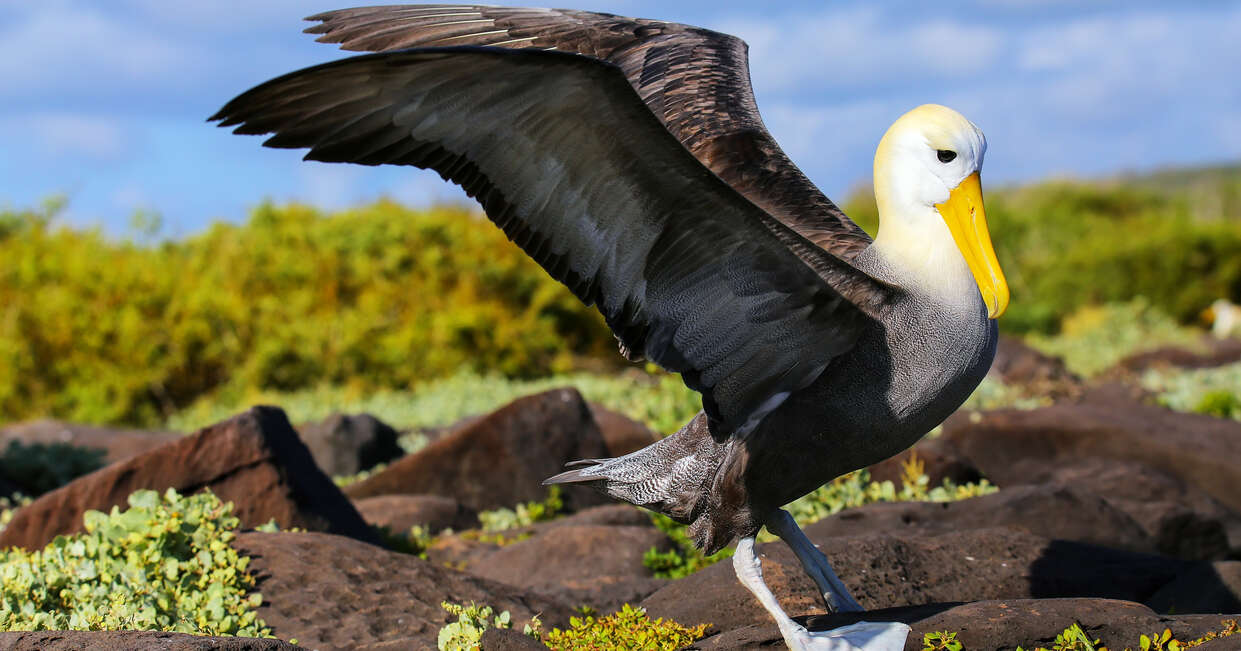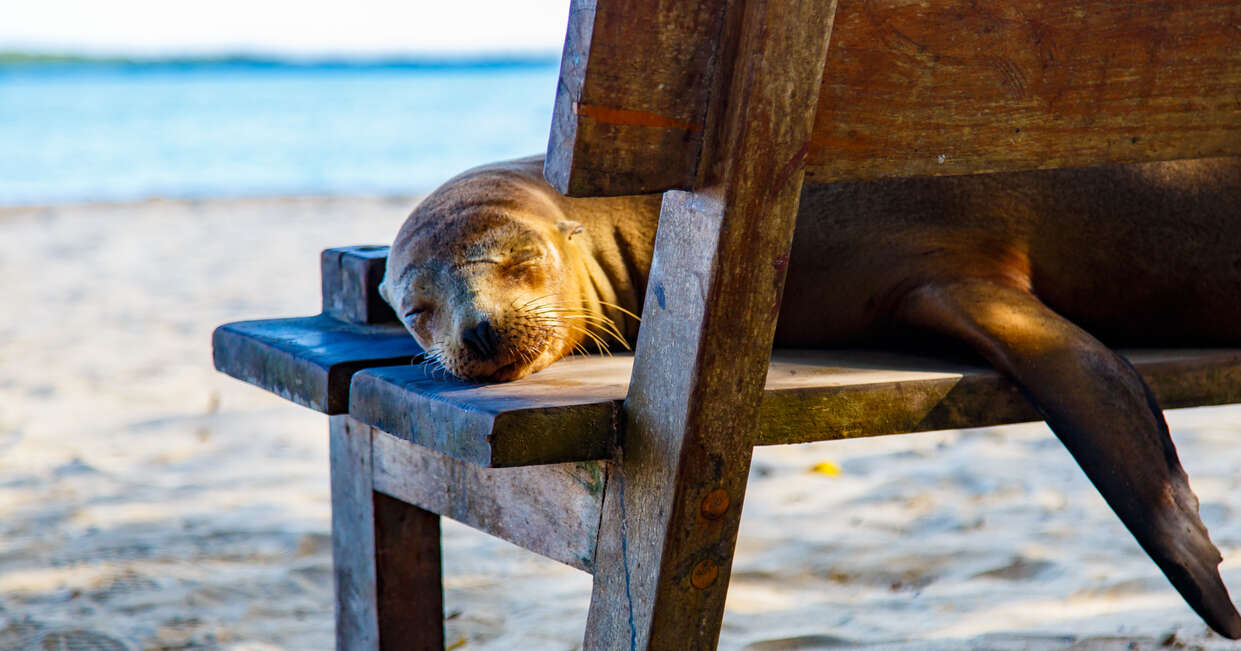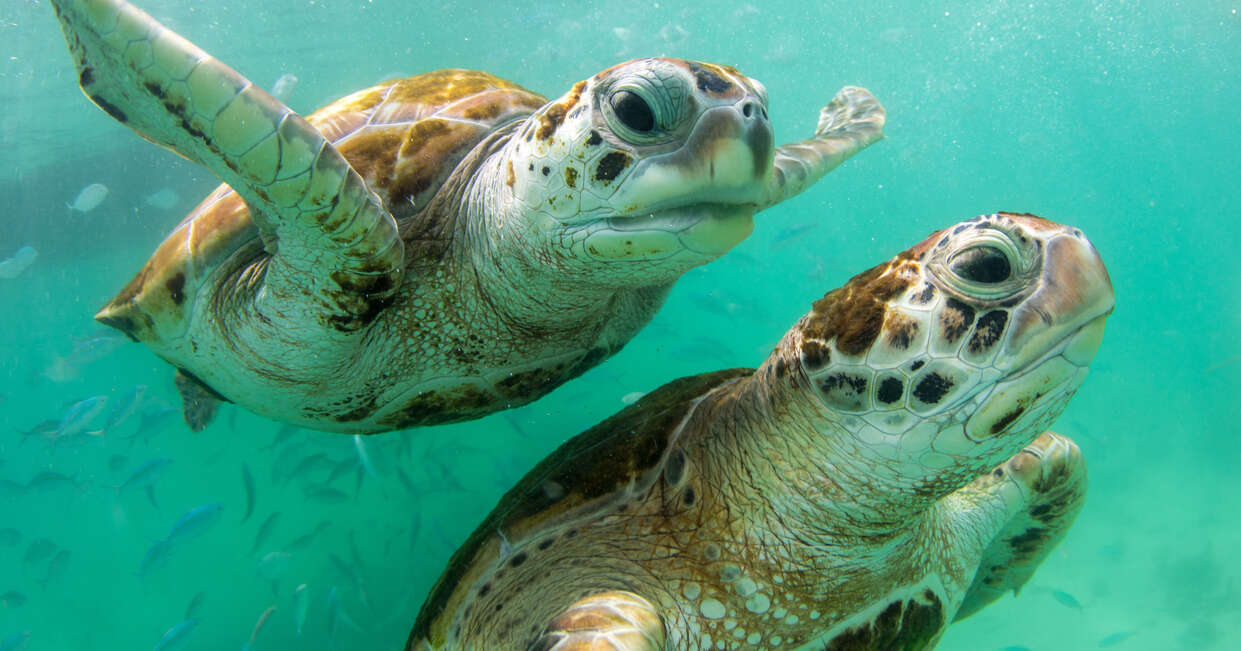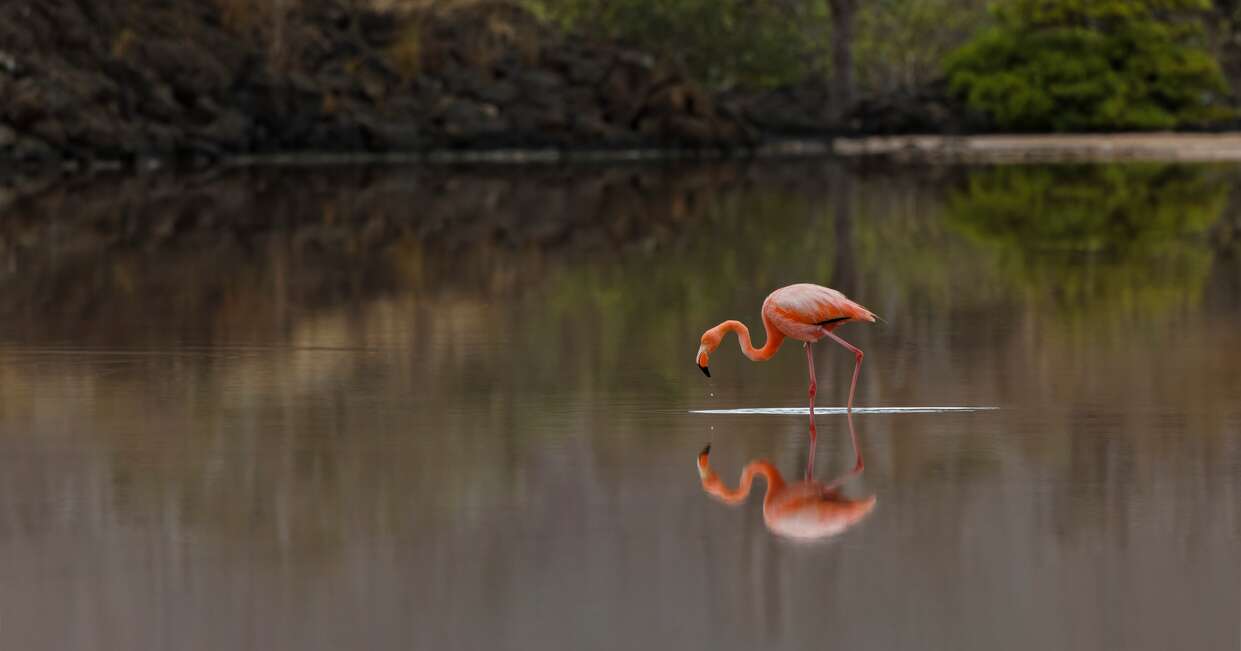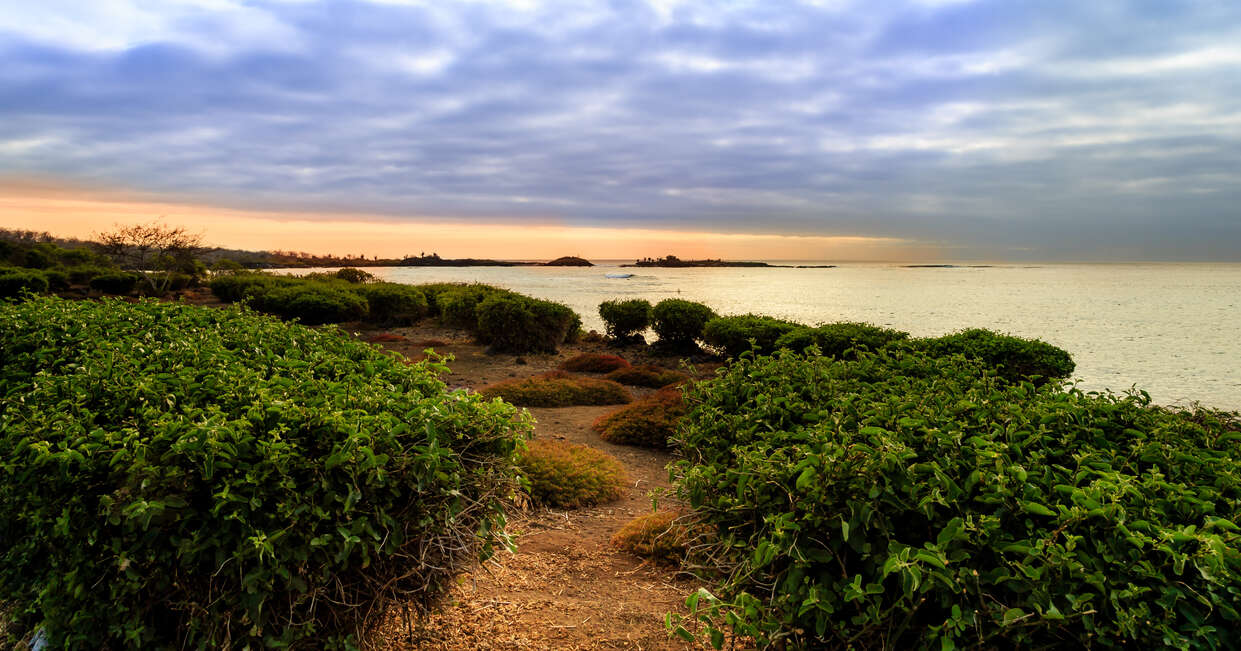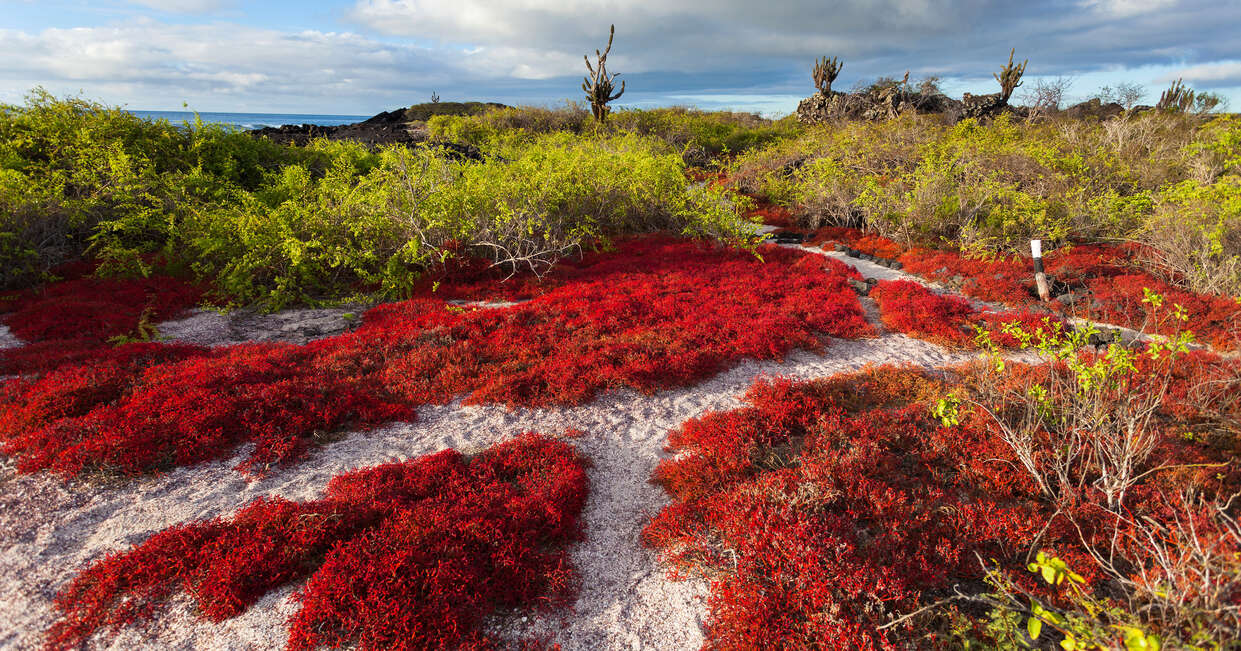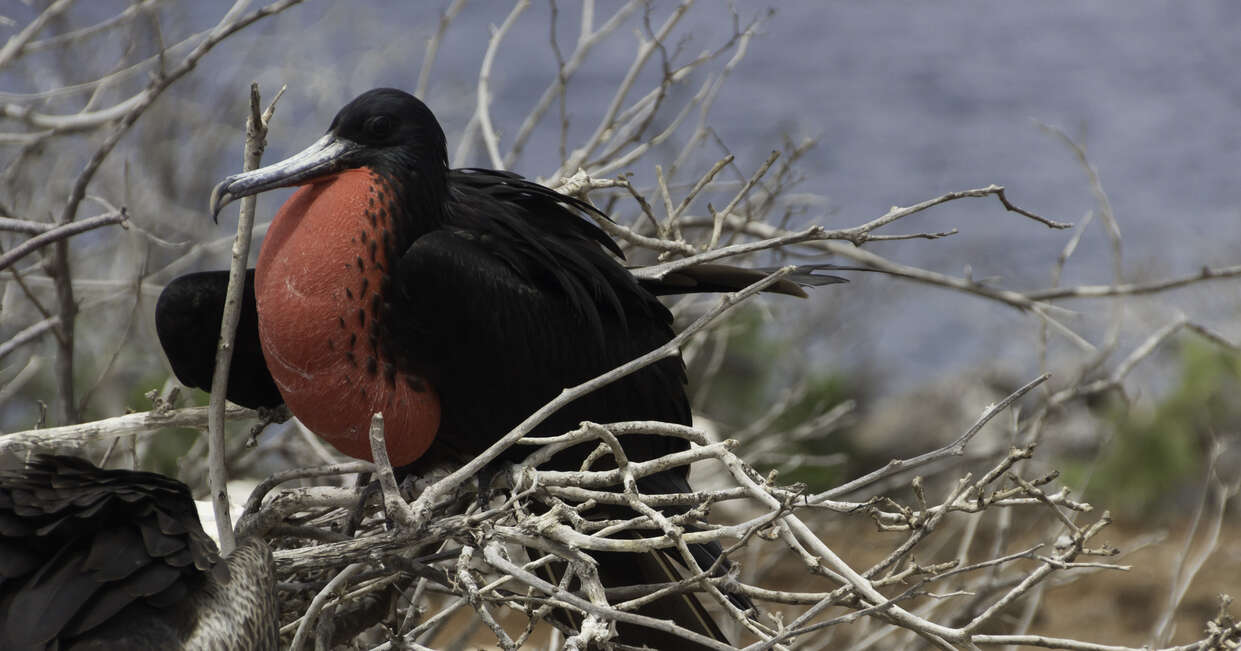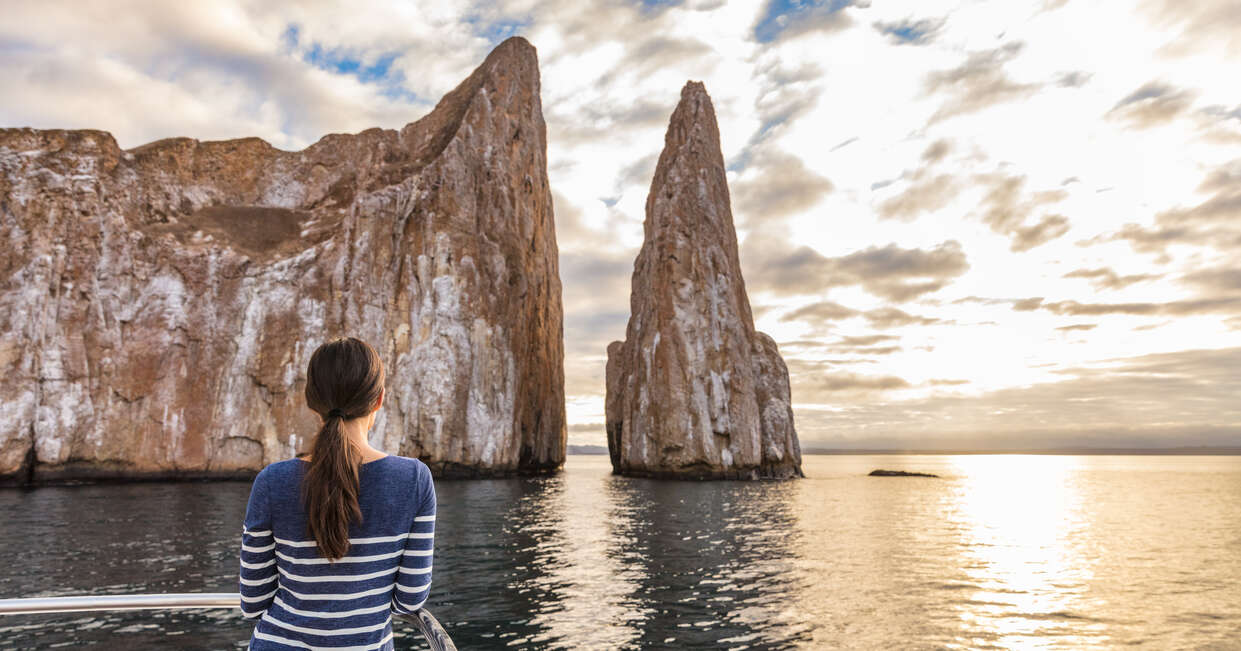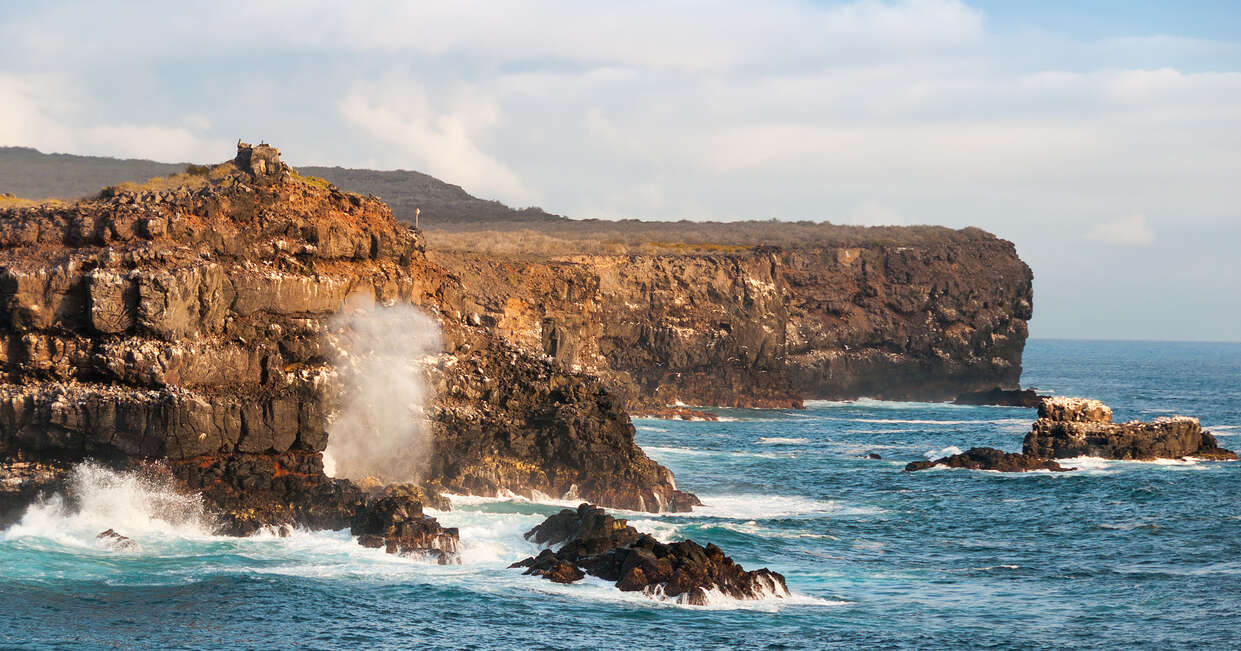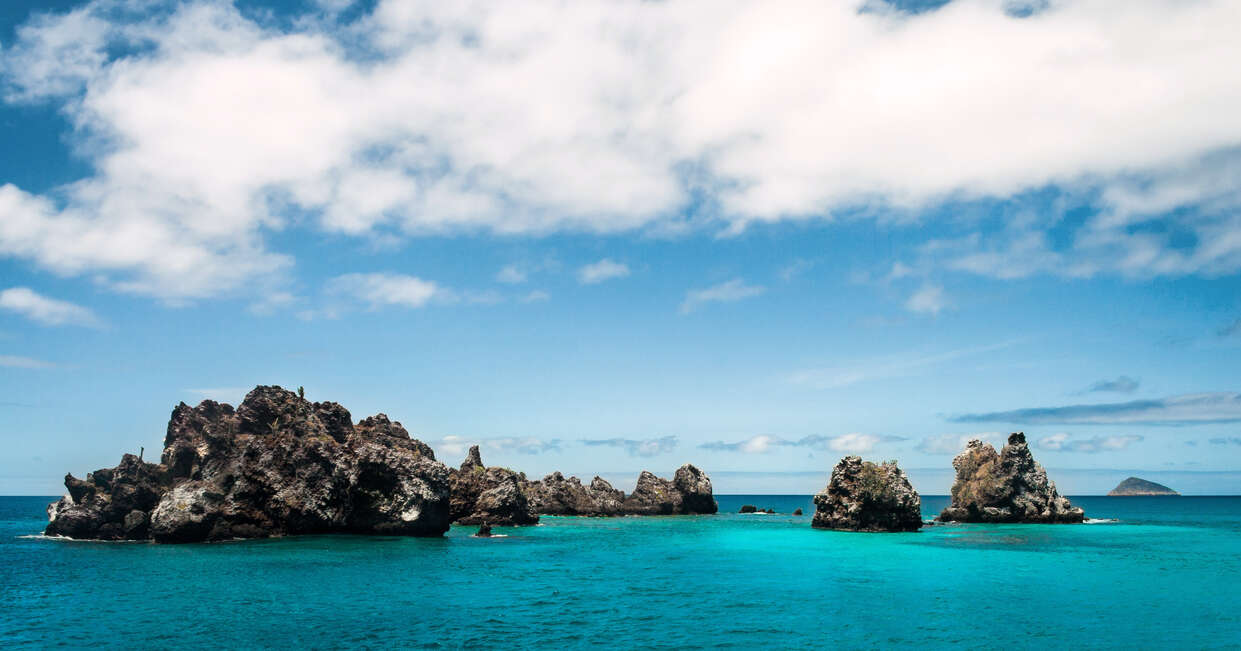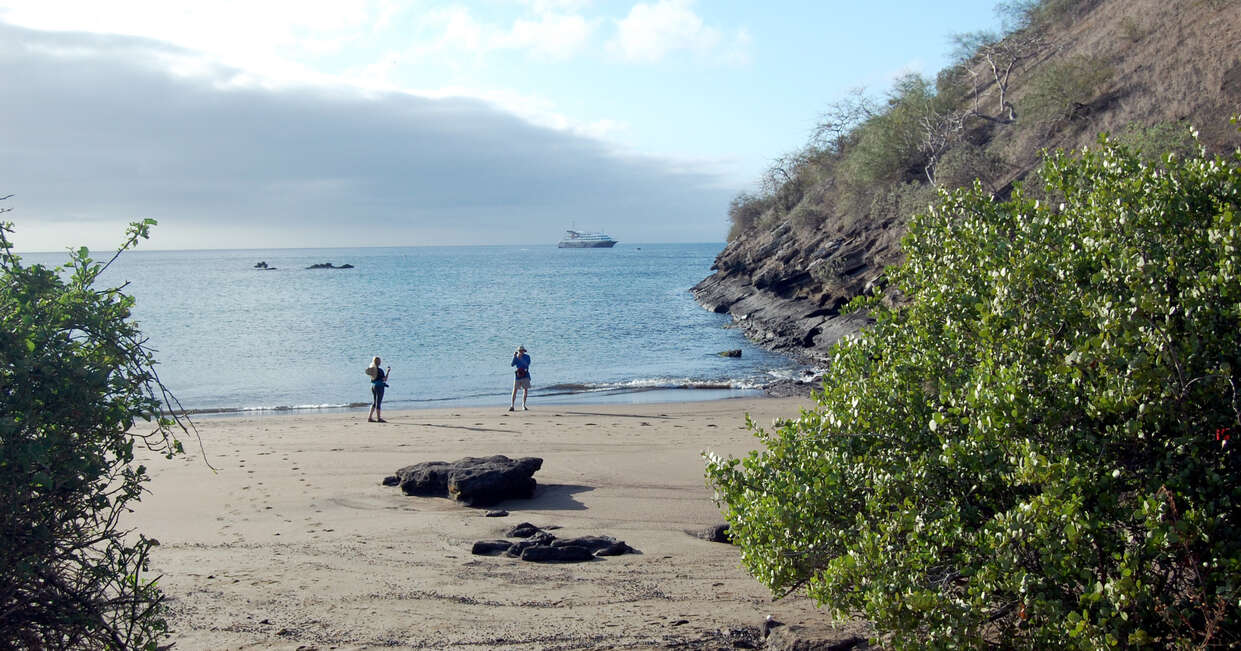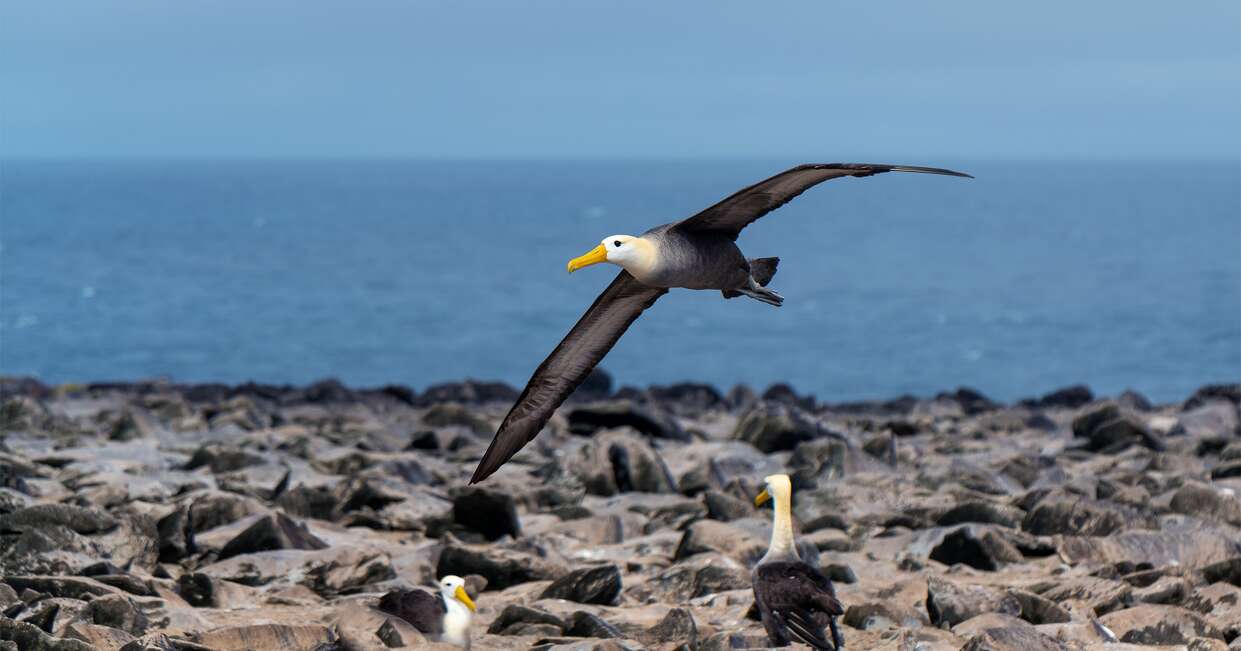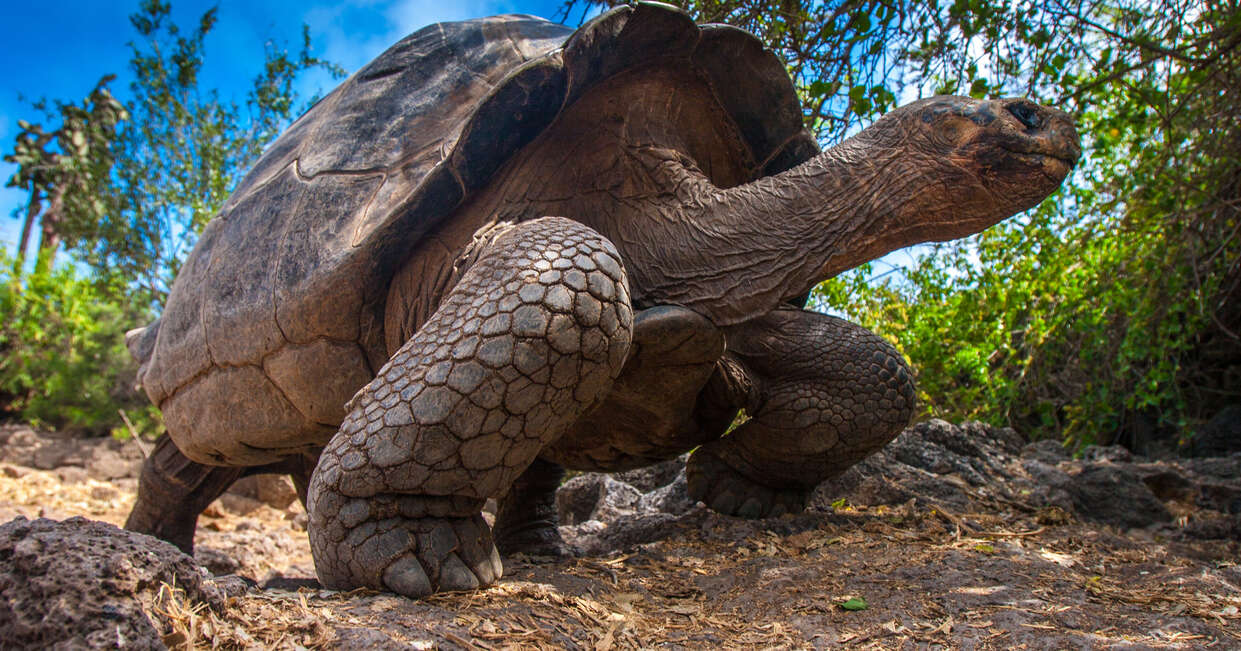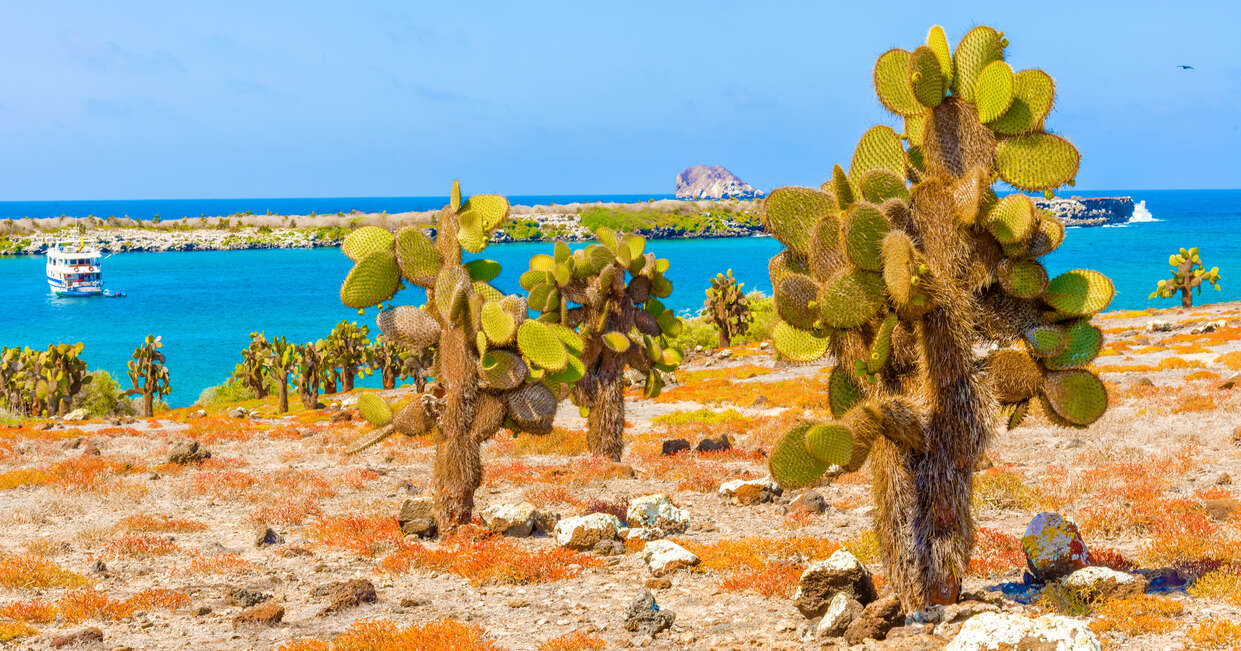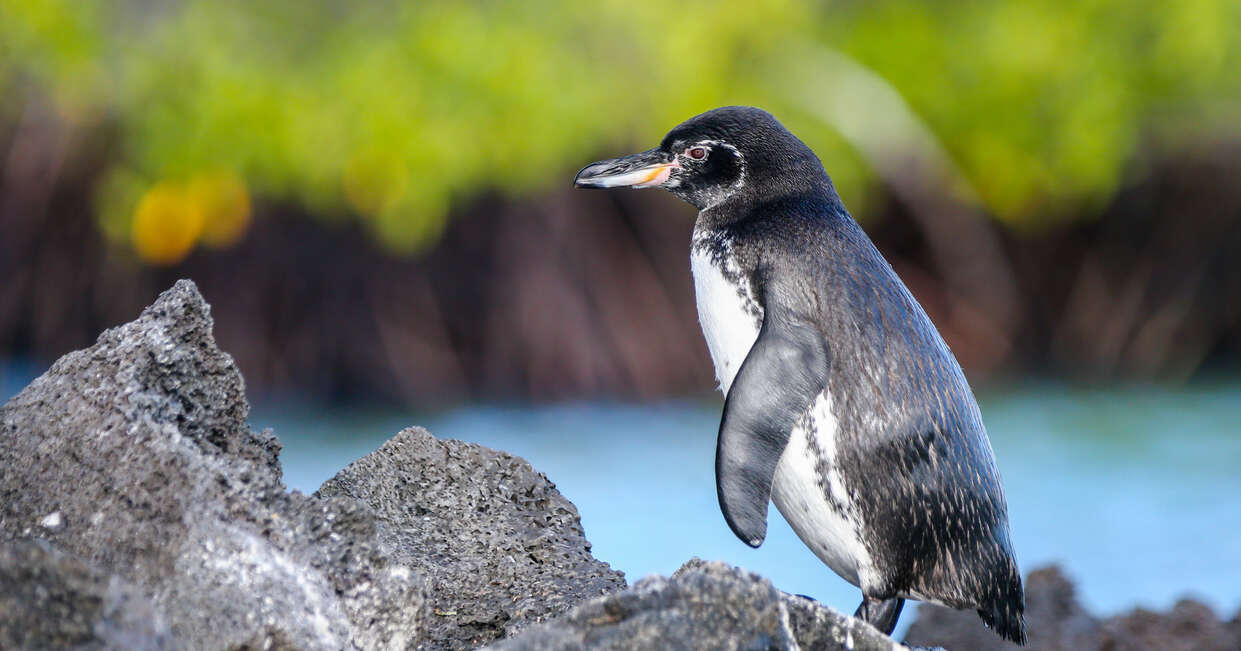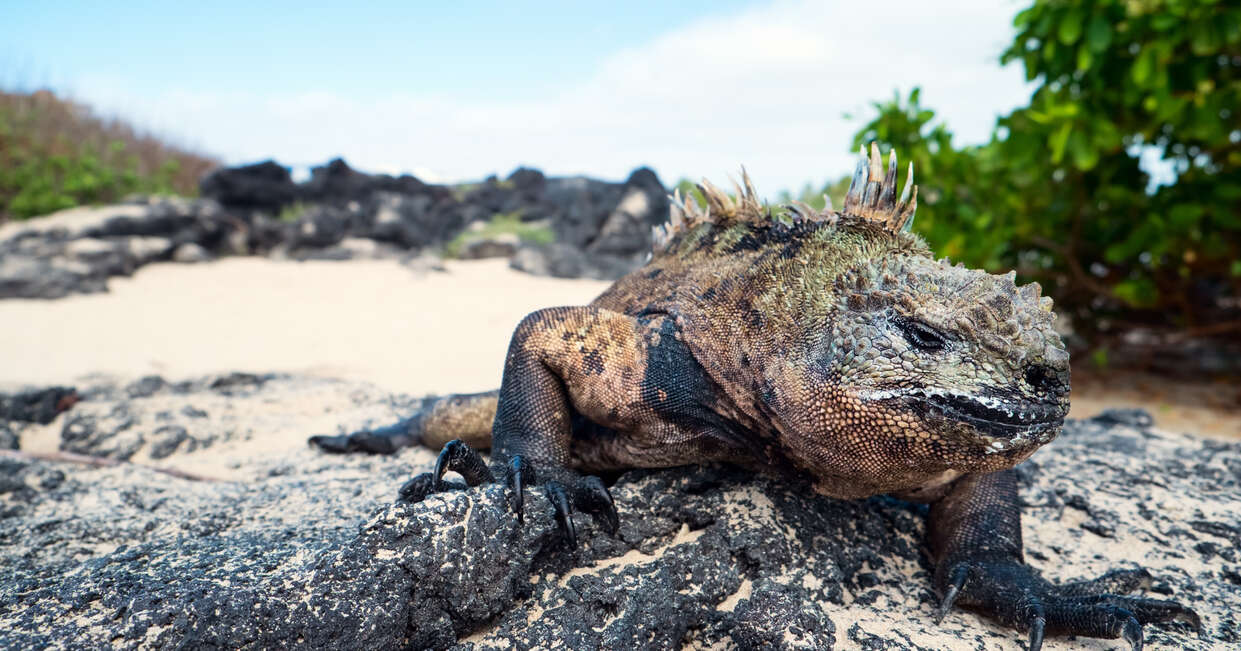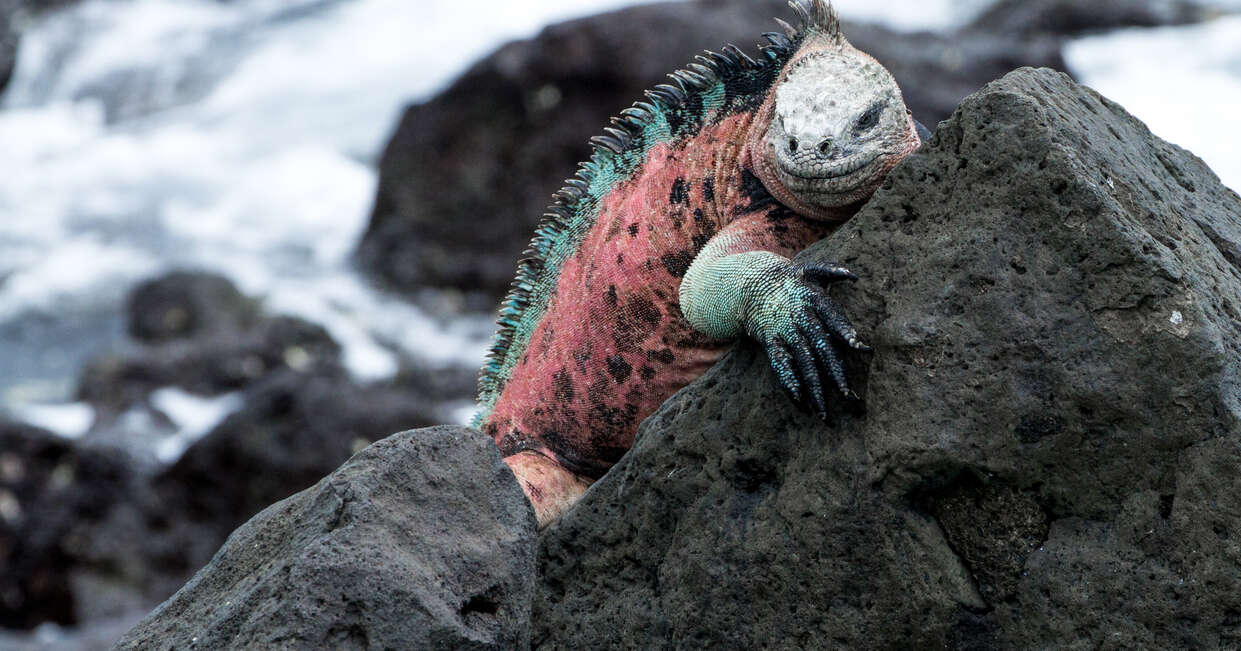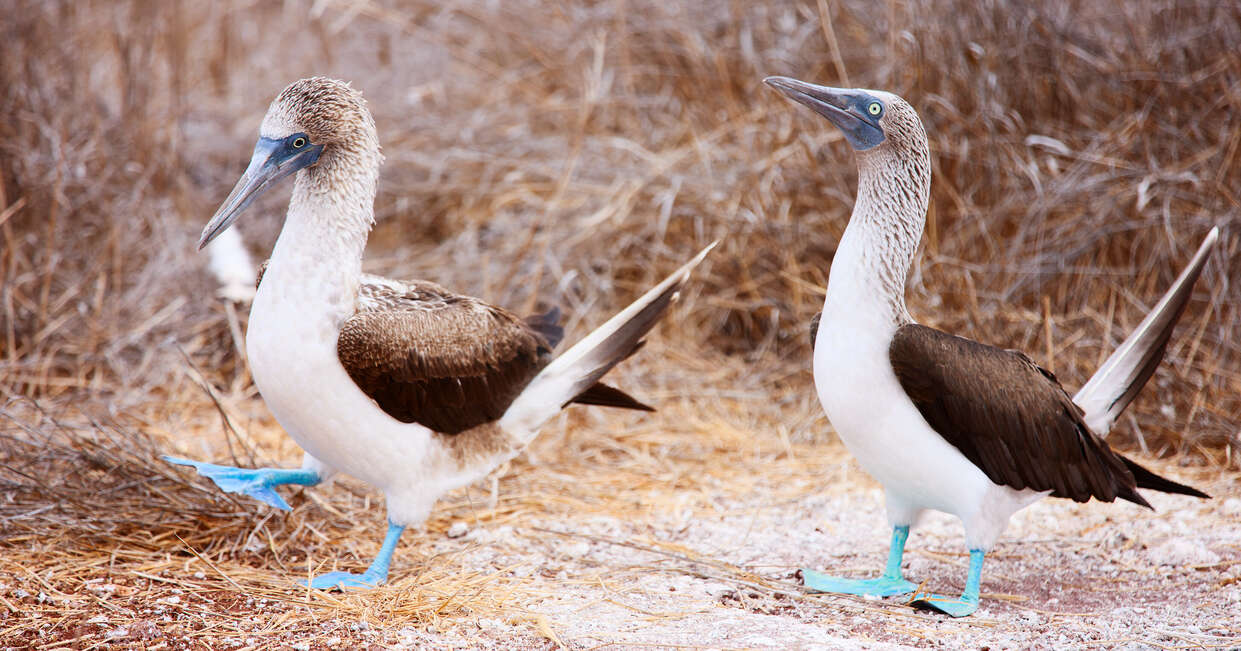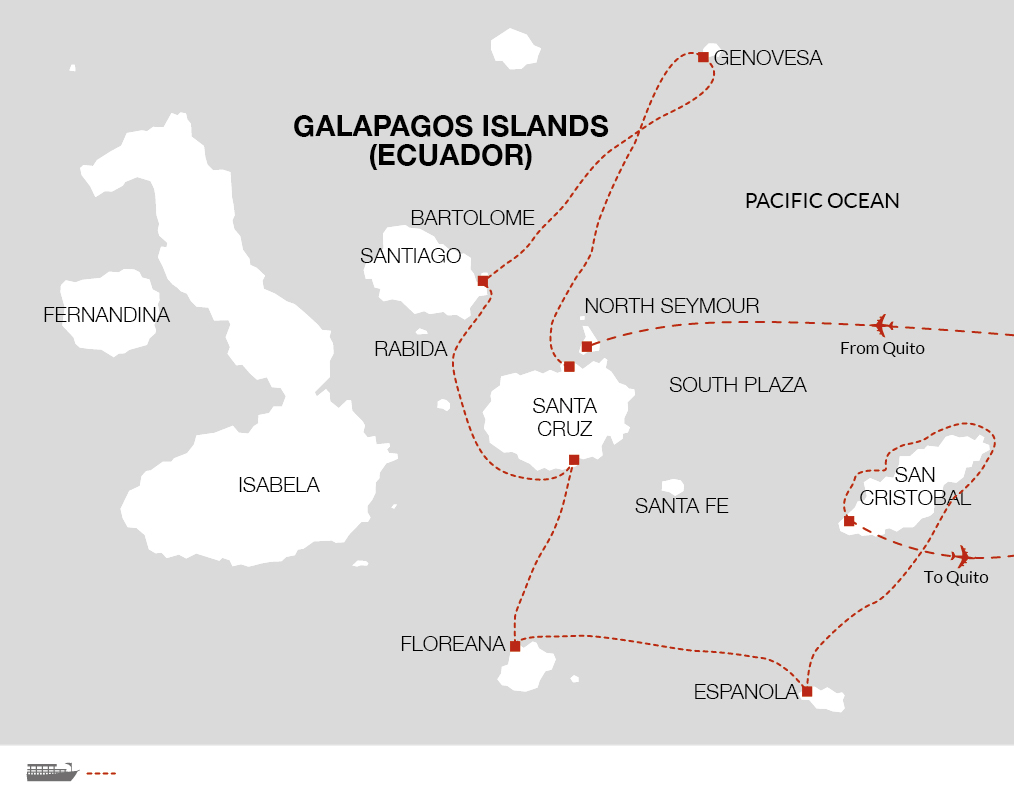Galapagos - Central, North, South and East Islands aboard the Archipel I
Galapagos - Central, North, South and East Islands aboard the Archipel I
$7650
Tour Overview
Embark on an unforgettable journey through the Galapagos Islands aboard the Archipel I catamaran. This tour offers a unique opportunity to explore the diverse wildlife and stunning landscapes of the Central, North, South, and East Islands. Accompanied by a naturalist guide, you'll spot iconic wildlife such as sea lions, blue-footed boobies, and giant tortoises. Snorkel in the vibrant waters of Devil's Crown and Gardner Bay, and hike the dramatic volcanic landscapes of Bartolome Island. Visit the Fausto Llerena Breeding Centre to learn about conservation efforts and witness the majestic waved albatross on Espanola Island. With comfortable accommodations and seamless travel arrangements, this adventure promises an immersive experience in one of the world's most extraordinary natural environments. ...more ...less
Highlights
Itinerary
Day 1 : Join trip in Puembo, Quito
Location: Quito
Accommodation: Hotel Rincon de Puembo
Accommodation Name: Hotel Rincon de Puembo
Arrive in Puembo, a quiet rural neighbourhood of Quito located around 20 minutes from the airport and 45 minutes from the downtown city centre.
Ecuador's mountain capital is, at 2,850m, the second highest capital in Latin America, lying in a narrow valley at the foot of the Pichincha Volcano. Arriving into the city by plane is quite spectacular as you approach over snow-capped mountains and extinct volcanoes - a window seat is recommended! You will be met on arrival at Mariscal Sucre International Airport (UIO) by a driver to take you to this evening's hotel, where more information will be given to you about tomorrow's schedule.
The hotel is a tranquil, colonial-style property with a large garden and swimming pool. It's located in the countryside suburbs of Quito, near the airport; perfect for an early start tomorrow. The hotel can help organise a taxi for you into downtown Quito if you arrive early in the day and wish to visit the city. ...more ...less
Day 2 : Fly to the Galapagos and board the Archipel I; snorkel at Bachas Beach
Location: Galapagos Islands
Accommodation: Archipel I
Accommodation Name: Archipel I
Meals Included: Breakfast, Lunch, Dinner
Today we transfer to the airport early for our flight to the Galapagos Islands via Guayaquil (refueling stop only, you will not disembark the plane).
Lying on the Equator, 970km west of the Ecuadorean coast, the Galapagos National Park is a unique collection of islands, formed by volcanoes over hundreds of thousands of years and consisting of six main islands, 12 smaller islands, and over 40 small islets, each one supporting a distinct and unique flora and fauna, including prehistoric creatures found nowhere else on earth. This desolate and fantastic habitat was discovered in 1535 by Fray Tomas de Berlanga. Charles Darwin visited the islands on the Beagle exactly three hundred years later, in 1835. He observed the total isolation of the giant reptiles and other creatures, and this played a substantial part in his theory of evolution.
Of the extraordinary animals to be found in the Galapagos many are reptiles, such as the great tortoise, large land iguanas, numerous lizards and three species of non-poisonous snakes. There are also several species of turtle, which come ashore to mate. Up to three quarters of a million seabirds flock to the islands, including a third of the world's blue-footed boobies, frigatebirds, pelicans, cormorants, albatross and petrels. Only 35cm tall, the Galapagos penguin can be seen swimming among tropical mangroves, whilst offshore it is common to see dolphins, sea lions and fur seals playing in the water. Fearless though not tame, the extraordinary wildlife is often inquisitive and the opportunities for photography are superb.
The Galapagos National Park charges a visitor fee of $100 USD (subject to change), payable in cash on arrival, which funds park maintenance and supervision in the Galapagos, as well as ecological study, conservation and infrastructure development in Ecuador's other national parks. Entry fees and the funds they generate for the national park system are among measures taken by the Ecuadorian government to protect its natural heritage.
At Baltra Airport, a guide will meet us to help us collect our luggage and accompany us to our stylish vessel - the Archipel I. We'll visit Bachas Beach this afternoon, a beautiful bay with soft, white coral sand that is frequently visited by sea turtles to lay their eggs. After enjoying some leisure time at the beach, we can explore a small lagoon hidden behind some bushes, where occasionally it is possible to observe flamingos, black-necked stilts and whimbrels. You might also observe some rusty barges, which were abandoned here after WWII when the USA rented this island as a strategic point to protect the Panama Channel from Japan.
Day 3 : Explore Genovesa Island
Location: Genovesa Island
Accommodation: Archipel I
Accommodation Name: Archipel I
Meals Included: Breakfast, Lunch, Dinner
The northernmost island in the archipelago, Genovesa is a wild and windswept volcanically-formed caldera. Before our landing, we'll take a dinghy ride along the eastern arm of the caldera, where the soaring 25 metre-high walls are quite overwhelming. We may spot a Galapagos fur seal or a seabird resting on one of the ledges at the base. The landing point at the steep Prince Philip's Steps see us hiking up the steep stairs from the landing dock to a bush of palo santo shrubs on top. Red-footed boobies use these scarce nesting places so that they don't have to nest on the rocky ground. Upon arriving at the edge of the rim, the bushes open up and we can enjoy panoramic views, a strong sea breeze and the amazing flying skills of countless seabirds.
While here at Genovesa, we'll also visit Darwin Bay and marvel at the sheer number of birds along the many trails - nesting frigatebirds, gulls, and boobies are just a few of the species we may spot. Be sure to bring your camera to take some snaps of our new feathered friends.
Day 4 : Visit Isla Bartolome and Sullivan Bay
Location: Isla Bartolome, Galapagos, Santiago Island, Galapagos
Accommodation: Archipel I
Accommodation Name: Archipel I
Meals Included: Breakfast, Lunch, Dinner
We'll see the dramatic volcanic features of Bartolome today, hiking to Bartolome's summit for a stronger perspective of the islands' not-too-distant volcanic origins and enjoying panoramic views - it's one of the best among the islands. The other Galapagos Islands are visible in the distance, as well as Pinnacle Rock, the island's famous towering landmark. We'll take the opportunity to swim and snorkel along the shore, home to one of the most iconic volcanic rock formations on the islands. Home to Galapagos penguins, friendly sea lions, sea turtles and a huge variety of fish, Bartolome and its surrounding waters are a fantastic place to explore the natural wonders of the Galapagos.
We continue to Sullivan Bay on Santiago Island this afternoon, where the arrival is like a moon landing. The desolate, sprawling lava fields seem to be mostly lifeless, but this island, which is particularly popular among photographers, is deceptive, with creatures proliferating even here. Green sea turtles burrow in the white-sand beaches, where you can also find sally lightfoot crabs, blue herons and oystercatchers.
Day 5 : Witness giant tortoise in the wild; visit the Fausto Llorena breeding centre
Location: Santa Cruz Island, Galapagos
Accommodation: Archipel I
Accommodation Name: Archipel I
Meals Included: Breakfast, Lunch, Dinner
In the morning we arrive in Puerto Ayora, on Santa Cruz Island. Santa Cruz is the second largest island in the Galapagos and has the largest population, with Puerto Ayora as its main town. It also boasts the most varied of the islands' vegetation zones: coastal, transition, scalesia, miconia and pampa. The native scalesia forest of El Chato Tortoise Reserve is the best place to search for Galapagos giant tortoises in their most authentic setting. Though it can be quite moist and muddy, the visit will be an adventure, trying to spot the giant creatures silently leave their favourite ponds. While on the mainland, we'll also visit the Twin Craters - found on either side of the road leading to Puerto Ayora. These impressive formations were formed by magma domes, which hardened on the outside while the lava continued flowing inside, leaving huge and empty magma chambers that eventually collapsed into two large holes. The craters lie within a lush scalesia cloud forest, a high-altitude plant species that is endemic to the Galapagos. This area is also home to the carpenter finch, which uses tools to search for food.
This afternoon we visit the Fausto Llerena Breeding Centre, where we can observe tortoises that come from various islands of the archipelago - at Fausto Llerena they are breeding tortoises only to repopulate areas where their populations have been affected by non-native wildlife (predominantly feral dogs). One of the main attractions here is the embalmed Lonesome George - estimated to have died at between 93 and 109 years of age, Lonesome George is recognised as the last of its kind, and as a symbol of the efforts invested into conserving endangered species.
Day 6 : Observe the wildlife of Floreana Island and visit Post Office Bay
Location: Floreana Island, Galapagos
Accommodation: Archipel I
Accommodation Name: Archipel I
Meals Included: Breakfast, Lunch, Dinner
The peninsula of Cormorant Point forms the extreme north cape of Floreana, and at the landing beach we will be welcomed by a small Galapagos sea lion colony. Spot schools of stingrays hiding in the sandy bottom of the beach and, during the first months of the year, witness Pacific Green turtles coming ashore to bury their eggs. From Cormorant Point we head to the snorkelling spot at Devil's Crown, a coral reef surrounded by an eroded volcanic crater and the perfect home for marine life. Look out for small sharks, rays and schools of tropical fish. You may even spot Galapagos penguins here - this spot is the only place in the south-eastern archipelago where the Galapagos penguin resides.
Later in the afternoon, we stop at Post Office Bay. A barrel was placed here in the late 18th century by English whaling vessels to be used as a post office. Passing ships would stop to leave mail for loved ones, collecting at the same time any mail destined for ports on their itineraries. Today the box is used mainly by tourists, and you can drop off your own postcard, picking up an unstamped letter to post for someone else. You can also climb the small basalt cone at the Baroness Lookout for panoramic views of the coastline. This viewpoint was the famous spot of one of Floreana's first settlers, the eccentric baroness and self-proclaimed 'Empress of the Galapagos' Eloisa von Wagner.
Day 7 : Snorkel in Gardner Bay and head onto Punta Suarez
Location: Espanola Island, Galapagos
Accommodation: Archipel I
Accommodation Name: Archipel I
Meals Included: Breakfast, Lunch, Dinner
Today we spend some time exploring Espanola Island, the southernmost island in the Galapagos archipelago and home to several wildlife species, including masked and blue footed boobies. We'll sail into Gardner Bay, an excellent swimming and snorkeling site. Strap on your snorkel and if conditions allow, see an abundance of sea life including; young sea lions and large schools of surprisingly big tropical fish, including yellow-tailed surgeonfish, king angelfish, and bump-head parrot fish.
In the afternoon, we head to Punta Suarez, where a hike to the top of the cliff makes for spectacular photo opportunities. This rugged point on the western side of Espanola Island is spectacular: gargantuan waves break on jagged cliffs and large bird colonies thickly populate the interior of the island; there is a distinct feel of desolate wilderness here. The waved albatross is seen here from April to December during its mating
esting season. This bird leaves land between January and March each year to make its annual odyssey far out to sea. Amazingly, Espanola is the nesting site of virtually the entire world population of this species, with more than 12,000 pairs residing here. Large numbers of masked and blue footed boobies are also found here, red-billed tropicbirds dash madly through the air, and both marine iguanas and sea lions are common. A huge blowhole at Suarez Point, where the surf is forced through a natural rock formation spouting seawater 15 to 20m into the air, adds to the island's impression of untamed beauty. We follow the trail through a rookery and learn the geological history of the island from our naturalist guide, including its dramatic volcanic features, climate, flora and fauna.
Day 8 : Find sea lions at Pitt Point and snorkel at the atmospheric Witch Hill
Location: San Cristobal, Galapagos
Accommodation: Archipel I
Accommodation Name: Archipel I
Meals Included: Breakfast, Lunch, Dinner
The wind-sculptured volcanic cliffs at Pitt Point make up the extreme eastern end of San Cristobal, and therefore of the whole archipelago. These cliffs were the first sight of land when HMS Beagle and Charles Darwin arrived on the 15th September, 1835. On the small green sand beach, we'll be welcomed by a group of barking Galapagos sea lions. This is a bachelor colony, where males usually relax and prepare themselves for fighting and mating. In the afternoon, we land at Witch Hill, where the primary attraction is snorkelling off the coral-sand beach. This was one of the first sites visited by Charles Darwin in this inaugural expedition, and has an impressive landscape, where we may see pelicans, blue-footed boobies and swallow-tailed gulls, as well as marine iguanas.
Day 9 : Explore the rugged beach at Lobos Islet; fly back to Quito
Location: Lobos Islet, Galapagos, Quito
Accommodation: Hotel Rincon de Puembo
Accommodation Name: Hotel Rincon de Puembo
Meals Included: Breakfast
The tiny island of Lobos has some wonderful wildlife encounters to experience. On foot, view the sea and shore birds nesting and feeding. Spot a small colony of blue-footed boobies, or nesting frigatebirds, who mate here with clumsy dances - heaving their striking blue feet or blowing up their balloon-sized scarlet pouches - as well as finding a large colony of sea lions. lions. Be sure to bring your camera to catch some snaps at this prime wildlife watching haven.
We'll then travel to San Cristobal Airport, from where we fly back to Quito and transfer to our hotel.
Day 10 : Trip ends in Puembo, Quito
Location: Quito
Meals Included: Breakfast
The trip ends after breakfast at our hotel in Puembo, Quito.
There are no activities planned today, so you are free to depart at any time. Pick-up times for your airport transfer to Mariscal Sucre International Airport (UIO) will be re-confirmed locally. If your flight is departing later in the day, luggage storage facilities are available at the hotel. If you would like to book additional nights in Quito at the end of your stay, these can be arranged either at the hotel in Puembo, or in a hotel in downtown Quito.
We recommend spending extra time in Quito, or adding to your nature-based holiday by booking our four-night Amazon extension package (trip code: AE).
What's Included
-
Naturalist Guide
Travel with a naturalist guide, spotting iconic wildlife from the comfort of a catamaran.
-
Snorkeling and Wildlife Exploration
Snorkel and walk to find sea lions, magnificent frigatebirds, blue-footed boobies, white-tip reef sharks and much more.
-
Bird Watching
Look for the waved albatross and the red-footed booby at the birding islands of Espanola and Genovesa.
What's Not Included
-
Galapagos National Park Fee
The Galapagos National Park charges a visitor fee of $100 USD, payable in cash on arrival.
-
Personal Expenses
Personal expenses such as souvenirs, additional meals, and drinks are not included.
-
Travel Insurance
Travel insurance is not included and is recommended for all travelers.
-
International Flights
International flights to and from Quito are not included.
Meals
Breakfasts: 9Lunches: 7
Dinners: 7
Mode of Transport
Begin your journey with a flight from Quito to the Galapagos Islands, with a refueling stop in Guayaquil. Upon arrival, board the Archipel I catamaran for a comfortable cruise around the islands. Return flights from San Cristobal to Quito are included, ensuring a seamless travel experience.Accommodation
Stay at the tranquil Hotel Rincon de Puembo in Quito, featuring a colonial-style property with a large garden and swimming pool. On the Galapagos Islands, enjoy the stylish Archipel I catamaran, offering comfortable accommodations while exploring the unique wildlife and landscapes of the islands.Check out our Q&As
-
What kind of wildlife can I expect to see on this tour?
During the tour, you can expect to see a variety of wildlife including sea lions, magnificent frigatebirds, blue-footed boobies, white-tip reef sharks, waved albatross, red-footed boobies, Galapagos penguins, and giant tortoises. The tour also offers opportunities to observe marine life such as small sharks, rays, and schools of tropical fish while snorkeling. ...more ...less
-
What activities are included in the tour?
The tour includes activities such as snorkeling, bird watching, hiking, and exploring various islands. You will have the chance to snorkel at places like Bachas Beach and Devil's Crown, hike to the summit of Bartolome Island, and explore the wildlife-rich areas of Genovesa and Espanola Islands. ...more ...less
-
What is the significance of the Fausto Llerena Breeding Centre?
The Fausto Llerena Breeding Centre is significant for its efforts in breeding tortoises to repopulate areas where their populations have been affected by non-native wildlife. It is also home to the embalmed Lonesome George, the last of his kind, symbolizing the conservation efforts for endangered species. ...more ...less
-
What is the historical significance of Post Office Bay?
Post Office Bay has historical significance as a site where a barrel was placed in the late 18th century by English whaling vessels to be used as a post office. Passing ships would leave mail for loved ones and collect mail destined for ports on their itineraries. Today, it is used mainly by tourists to drop off postcards and pick up unstamped letters to post for others. ...more ...less
-
What can I expect during the visit to Bartolome Island?
During the visit to Bartolome Island, you can expect to see dramatic volcanic features and enjoy panoramic views from the summit. The island is home to iconic volcanic rock formations and offers opportunities to swim and snorkel along the shore, where you might encounter Galapagos penguins, sea lions, sea turtles, and a variety of fish. ...more ...less
-
I'm going on a walking/cycling trip-do I need to train?
It will depend on the grade and how fit you already are. Check the trip page for details of the walking or cycling grade and how far you’ll be walking/cycling each day. For moderate or challenging trips in particular we’d recommend doing some walks or cycles before you leave to build up your fitness and prepare you for the distances being covered.
-
Who will be my travelling companions on the tour?
We have a wide range of ages nationalities on our small group trips and they come from all walks of life.
-
Should I get travel insurance?
Yes–it is a condition of booking that you are fully insured when travelling with us
-
How long has the tour company been trading?
At Explore, we're the experts in adventure travel. Our small group adventure holidays have been running since 1981. Today, Explore is one of the most trusted travel companies in the UK with over 500 trips to more than 120 countries.
-
Can I join the tour once it has departed?
Yes, but there are no concessions for doing so, and we must have a record in your booking advising as such before the trip departs.
-
Am I contributing to any charity by booking the tour?
Being a responsible company is a large statement, something that has to be entwined within the very fibre of a company. Discover the charities and partnerships we support as part of this at https://www.explore.co.uk/about/sustainability/charities-and-partners
-
What happens if I need to change my holiday date once I’ve booked?
We want to be as clear as and as honest as possible about what happens if you decide to that you no longer wish to travel on your trip. Our booking conditions have details of the costs you’ll incur when you cancel-these charges depend on how long it is before your planned departure.
-
What is the accommodation like?
We choose comfortable accommodation in the best locations possible. We opt for small, local and family-run accommodation where we can, as opposed to large chain hotels. We typically use hotels that are the equivalent of European 3-star, and you’ll usually have an en suite room. Occasionally, where we want to get off the beaten trail we may stay in more basic accommodation.
-
What Ethical Travel credentials does the tour company have?
Sustainability is embedded within the fibre of Explore, it emanates from the inside out. But as we enter a new decade it is clearer than ever that our world needs help, and Explore has created a sustainability strategy based on the 2015 UN’s Sustainable Development Goals.
-
What policies are in place for Covid-19?
Our flexible booking and safety policies mean you're protected before and during your travels with us. Receive a full refund if your trip is cancelled, transfer your trip free of charge up to 10 days before departure minus any irrocoverable costs.
-
Do I need to be very fit to book with you?
All our trips require some level of active participation. This could be on a cultural trip, trek, safari, expedition or voyage. It is in the interests of all members of the group that everyone should be capable of fully participating in the activities of their chosen trip.
-
What documents will I receive before I travel?
Final documents will include a comprehensive trip itinerary, climate and country information, budgeting and packing advice visa and passport information and details on optional activities available.
-
Do you operate a “single share” option and how does it work?
Yes on most of our trips. Most trips are based on customers sharing twin-bedded rooms. If you book a group trip as an individual, you will share a room with someone of the same sex. However, on many trips we offer the opportunity to pay a supplement to pre-book a single room, known as our single room option. On some trips a single room will be provided every night, on others it will be provided o
-
Do we have to be vaccinated against Covid-19 to travel
It’s now a condition of booking a trip with us that customers should have one of the following before they travel - — Be vaccinated against COVID, having received the full recommended course, and allowing enough time for immunity to take effect. Full vaccination includes any booster required to keep the vaccine valid. — Have taken a negative test (rapid antigen or PCR) within 72hrs of departure.
-
Will the accommodation included meet local health and safety regulations?
Explore will only offer hotels that have specific COVID-19 protocols in place and comply with local government guidelines. We will ensure these measures include; enhanced room cleaning, ventilation, social distancing, regular cleaning and disinfection of high frequency touch points in public areas, food safety, staff re-training and minimising contact within the properties.
Reviews of this operator
1 Select your preferred date
Book with Confidence
-
Free Date Changes
Explore! allows you to make 1 free date changes, as long as the change is made at least 70 days before the start of the tour.
-
Low Deposit
Explore! requires a minimum deposit of 10% or the full booking value, whichever is less, with the final balance not due until 70 days before departure.
-
Cancellation Policy
We don't charge a cancellation fee, here is a summary of explore! charges.
Up to 70 days before tour starts: Forfeit 100% of deposit.
At 69 days before tour starts: Forfeit 30% of booking price.
At 41 days before tour starts: Forfeit 60% of booking price.
At 27 days before tour starts: Forfeit 90% of booking price.
At 13 days before tour starts: Forfeit 100% of booking price.
Galapagos - Central, North, South and East Islands aboard the Archipel I
10 Days Starting and ending in Quito, Ecuador
Visiting: Quito, Galapagos Islands, Genovesa Island, Isla Bartolome, Galapagos, Santiago Island, Galapagos, Santa Cruz Island, Galapagos, Floreana Island, Galapagos, Espanola Island, Galapagos, San Cristobal, Galapagos, Lobos Islet Galapagos ...more ...less
Tour operator:
Tour code:
GA7B
Guide Type:
Fully Guided
Age range:
16-0
